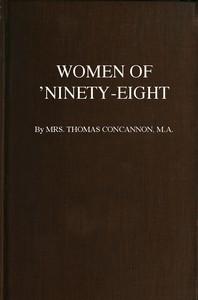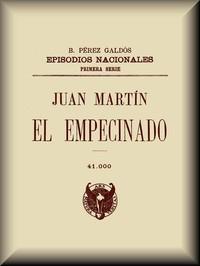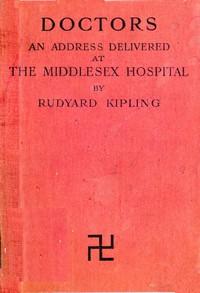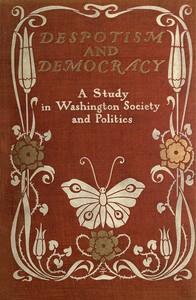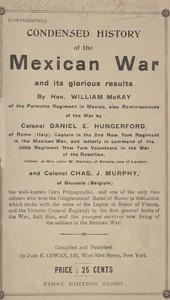|
|
Read this ebook for free! No credit card needed, absolutely nothing to pay.Words: 49343 in 10 pages
This is an ebook sharing website. You can read the uploaded ebooks for free here. No credit cards needed, nothing to pay. If you want to own a digital copy of the ebook, or want to read offline with your favorite ebook-reader, then you can choose to buy and download the ebook.

: Women of 'Ninety-Eight by Concannon Thomas Mrs - Ireland History Rebellion of 1798; Women Ireland Biography@FreeBooksThu 08 Jun, 2023 rdinary beauty and fascination of her little girl attracted the attention of a Mr. Forth. Mr. Forth was accustomed to buy horses in England for his Grace of Orleans, but recently he had received another commission: to look out for a little English girl, to be educated with the Orleans children, and to speak English with them. Mary Simms was very poor, and her desire to keep her child with her was not strong enough to stand in the way of the brilliant provision thus promised her. Accordingly, Mr. Forth was soon able to announce to his royal patron that he was sending him "the handsomest mare and the prettiest little girl in all England." Footnote 80: It has been pointed out by Madden that in the civil marriage contract of Pamela and Lord Edward, the bride's father is stated to have been a William Berkley, while in the religious contract of the same date Pamela is entered as the daughter of William de Brixey. All we know with certainty of Pamela's "origin" is that at a very early age she made her appearance in the Convent of Bellechasse, whither Madame de Genlis had retired to devote herself to the education of the children of the Duke and Duchess of Orleans, and that until her marriage with Lord Edward in December, 1792, she was the constant companion of the young princes and their sister, and shared that remarkable and original system of education, which Madame de Genlis--one of the most gifted educationists of France, the country of educationists--had devised for her pupils. Footnote 81: The name Pamela was borrowed by Madame de Genlis, who was an enthusiastic admirer of the novels of Samuel Richardson, from the heroine of the most famous of them. Into this peaceable retreat Madame de Genlis was accompanied by her mother and her two daughters, Caroline and Pulch?rie de Genlis, the completion of whose education she thus found an opportunity of directing, before their early marriages to the Marquis de La Woestine and the Viscount de Valence respectively. In 1782 one of the little twin princesses died of smallpox, and in the same year Madame de Genlis was appointed "Governor" to the young princes, their brothers--the first woman to hold such a post of honour and responsibility. From this moment Bellechasse became a regular academy. In addition to the three princes, the Duke de Valois , the Duke de Montpensier, the small Duke de Beaujolais, and their sister Mlle. d'Orl?ans , the Countess had also, under her care her nephew, C?sar de Crest, her niece, Henrietta de Sercey, and the two mysterious little girls, Pamela and Hermione. Of Hermione's parentage nothing is known; but she was thought by some people to be a sister of Pamela. In order to have a free hand to carry them out Madame de Genlis got rid of the Princes' tutor, M. de Bonnard, and substituted M. Lebrun, a former secretary of her husband. Their second master, M. l'Abb? Guyot, was allowed to remain, though he and the Countess were anything but kindred spirits. The Countess, according to herself, had her work cut out for her to correct the defects of the little boys' previous education. They knew nothing at all, and the eldest, in particular, was wanting in application to an unheard-of degree. Their new teacher began by reading history for them. "M. le duc de Valois paid no attention, yawned, stretched himself and finally lay back on the sofa with his heels on the table." The Countess put him "in penance" immediately. But the good sense of the little boy, which even at that period of his development, was easily appealed to, made him take it in good part. He was very much addicted to slang, and had some very peculiar foibles: he was in terror of dogs, and could not endure the smell of vinegar. The Countess succeeded in ridding him of these peculiarities. Modern languages, taught on the direct method, were a strong point in the Bellechasse system. There was a German Valet de Chambre to speak German to the children; an Italian to speak Italian; an Englishman to help them to a conversational knowledge of English. It was ostensibly to speak English with Mademoiselle that Pamela, as we have seen, was added to the establishment. Free books android app tbrJar TBR JAR Read Free books online gutenberg More posts by @FreeBooks
: Juan Martín el Empecinado by P Rez Gald S Benito - Martín Juan 1775-1825 Fiction@FreeBooksThu 08 Jun, 2023

: Doctors An Address delivered to the Students of the Medical School of the Middlesex Hospital 1st October 1908 by Kipling Rudyard Lucas Reginald Author Of Introduction Etc Holmes Oliver Wendell Contributor - Physicians@FreeBooksThu 08 Jun, 2023
|
Terms of Use Stock Market News! © gutenberg.org.in2025 All Rights reserved.

